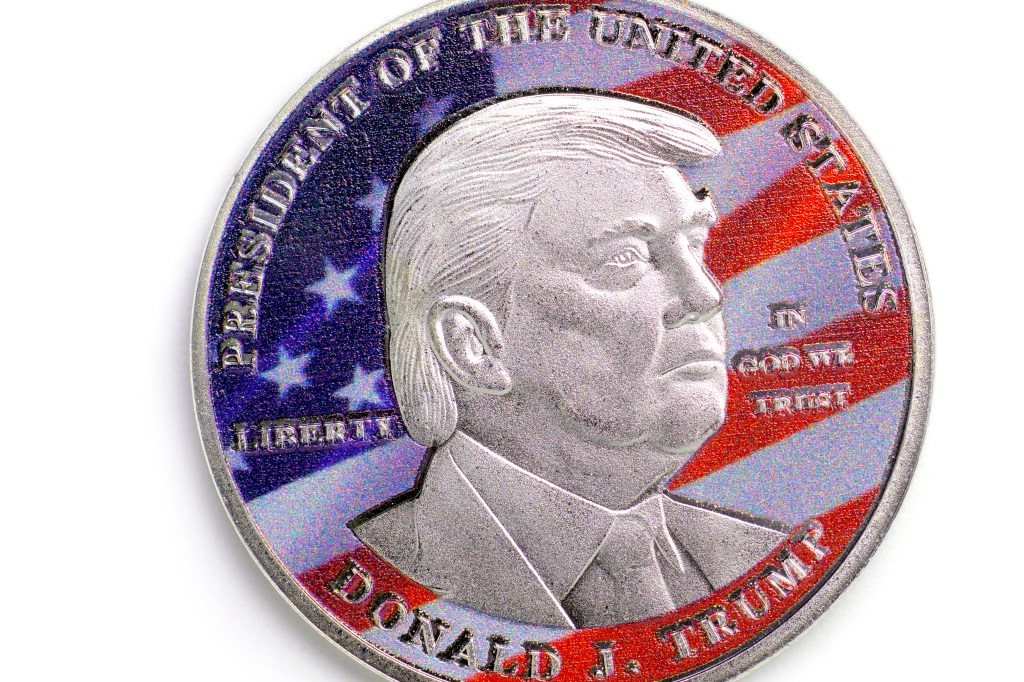The SEC has just said that stablecoins – for the most part – are not securities.
The determination comes in a statement from the agency’s Division of Corporate Finance issued, which means that these coins do not need to be registered with the commission. It applies to what are called “covered stablecoins.”
According to the statement: “Covered stablecoins are crypto assets designed and marketed for use as a means of making payments, transmitting money or storing value. They are designed to maintain a stable value relative to [US dollar] USD and are backed by USD and/or other assets that are considered low-risk and readily liquid so as to allow a covered stablecoin issuer to honor redemptions on demand.”
That means persons involved in the process of ‘minting’ (or creating) and redeeming covered stablecoins do not need to register those transactions with the SEC under the Securities Act or fall within one of the its exemptions from registration.
The definition generally includes fiat-backed stablecoins that do not provide a yield or interest to the stablecoin holders.
Corporation Finance noted that its view is “not dispositive” of whether any stablecoin is offered or sold as a security, such as non-USD stablecoins or commodity linked stablecoins.
Decision in context
Stablecoins are a type of crypto asset designed to maintain a stable value relative to a reference asset, such as USD or another fiat currency, or a commodity like gold, or a pool or basket of assets.
Stablecoins are generally designed to track the value of the reference asset on a one-for-one basis; they are largely used for trading on centralized and decentralized exchanges and as collateral in decentralized finance.
Crypto investors watch their movements closely for evidence of demand, liquidity and activity in the market. And they are hugely popular – with new ones popping up in the marketplace from online payment platforms like PayPal and cryptocurrency exchanges and custodians like Gemini.
Even with the popularity, the SEC’s statement might seem unnecessary, given that there will soon be stablecoin legislation. But there might be a few other reasons behind this timing.
First, World Liberty Financial, which is controlled by the Trump family, has a new USD1 stablecoin, pegged to the US dollar and backed by short-term US government treasuries, US dollar deposits, and other cash equivalents.
And Tether, the world’s most traded cryptocurrency, said it is considering offering a US-only stablecoin, if Donald Trump’s administration introduces regulations to encourage new market entrants.
In addition, the market cap for dollar-backed stablecoins has grown more than 46% in the past year, according to CryptoQuant; so it could partly be because no one wants to wait for regulatory clarity any longer.
Acknowledging the enthusiasm, at the Digital Asset Summit in New York last month, President Trump addressed attendees virtually, saying the industry “will unleash an explosion of economic growth, and with the dollar backing stablecoins, you’ll help expand the dominance of the US dollar.”
Crenshaw’s statement
Democratic commissioner Caroline Crenshaw issued a statement to express her contrary views on the stablecoin statement by Corporation Finance, saying “[t]he statement’s legal and factual errors paint a distorted picture of the USD-stablecoin market that drastically understates its risks.”
She said much of the staff’s analysis is premised on issuer actions that supposedly stabilize price, ensure redeemability, and otherwise reduce risk. She said the SEC downplayed the role of intermediaries, particularly unregistered trading platforms, as primary distributors of USD-stablecoins, and that they pose significant, additional risks in this arena.
The GENIUS and STABLE Acts
As for the stablecoin legislation pending in Congress right now – it’s called the GENIUS Act – and it seeks to provide a framework for regulating stablecoins. It was advanced out of the Senate Banking Committee with bipartisan support last month. US House Financial Services Committee Chair French Hill (R-AR) has already signaled his intention to move forward with a similar proposal, the STABLE Act.
Either legislation is expected to spur the start of banks issuing their own stablecoins to take advantage of their ability to make payments faster, cheaper and more transparent. And their relatively minor differences bode well for a unified regulatory framework in the near future.













